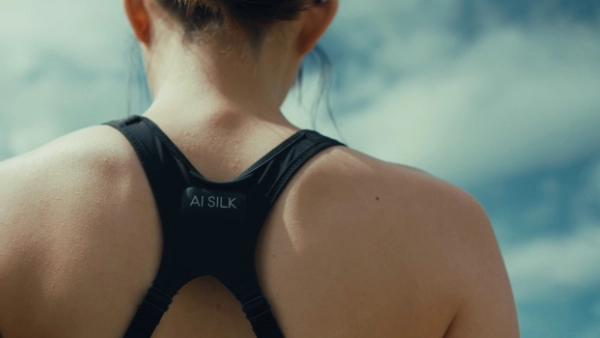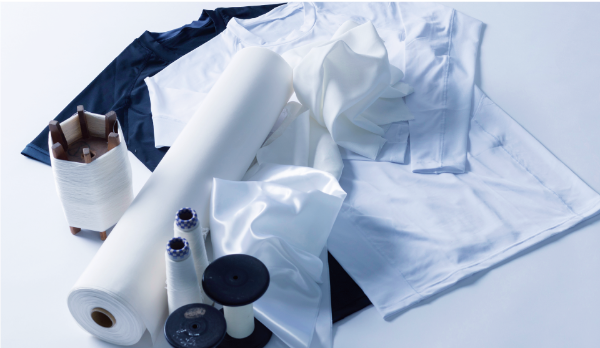Conductive polymers make sportswear smart
Smart watches and fitness trackers are companions for many athletes. The digital helpers measure pulse and speed and record sporting successes. But clothing is also developing in this direction - the first shirts on the market can measure heartbeat as well as absorb sweat. They support training and subsequent rehabilitation. This is made possible by innovative textile fibers from the Japanese startup AI Silk, which contain the flexible polymer Clevios™ from Heraeus Epurio.

Digital technologies have become indispensable for many athletes. Fitness and health apps on smartwatches measure pulse, respiration, heartbeat and provide nutrition tips. They record distances driven or run and motivate users to set new records. In addition, there are wireless headphones that provide the right music. But there is one area where digitization is still in its infancy: clothing and fabrics. This is slowly changing. The first innovative approaches to getting more out of T-shirts or jackets already exist and can be seen annually at sports industry meetings. For example, sensors and electrodes can be integrated into the fabrics, which then measure various parameters: body temperature, movement or pulse. Depending on the need and individual condition, jackets then provide more or less warmth. Smart textiles could represent a revolution, especially in the sports sector. Wearables such as smart watches or other fitness devices that restrict movement could become superfluous. Simply wearing a smart T-shirt could be enough to collect and evaluate all the necessary fitness and health data. This is exactly what the Heraeus Epurio business unit is making possible together with the Japanese startup AI Silk - and its conductive textiles for sportswear.
Electrodes in the fabric collect data and stimulate muscles
AI Silk from Japan has developed the innovative LEAD SKIN®conductive fibers, which are produced using dyeing technology and are already available on the Japanese market. To produce the conductive fabric, the fiber itself becomes electrically conductive by a conductive polymer coating made of Clevios™, developed by Heraeus Epurio. The startup uses fabrics made from natural silk or synthetic fibers such as polyester, for the production of textile electrodes - which can then be used again to measure data such as heartbeat or movement parameters and stimulate muscles in sportswear. Clevios™ is based on polythiophenes, or PEDOT, and is characterized by its excellent conductivity and stability. It supports smooth training and rehabilitation activities by absorbing moisture, for example, without the electrode being damaged by perspiration. LEAD SKIN® is durable and remains stable after many washing cycles longer than typical conductive textiles in the market. Unlike conventional electrodes, textiles made of PEDOT have a much lower risk of rashes or itching, even after prolonged skin contact. This makes them suitable even for people with sensitive skin. Furthermore, AI Silk has obtained OEKO-TEX standard 100 Class 1 certificate. In addition, the electrodes can even stimulate muscles without causing tingling. This enables effective electro-muscle stimulation training (EMS) - completely independent of fitness studios.

What is currently only available in Japan will soon come to Europe. The Heraeus Epurio business unit, which has been working with AI Silk since 2016, believes in the startup's success. "The demand for smart sportswear is increasing," predicts Tetsuya Suzuki of Heraeus Epurio. "During the pandemic, many people are practicing their workouts from home instead of the gym. Whether it's a home workout or a run around the block, smart sportswear supports home workouts just as well as treadmills in the gym."


